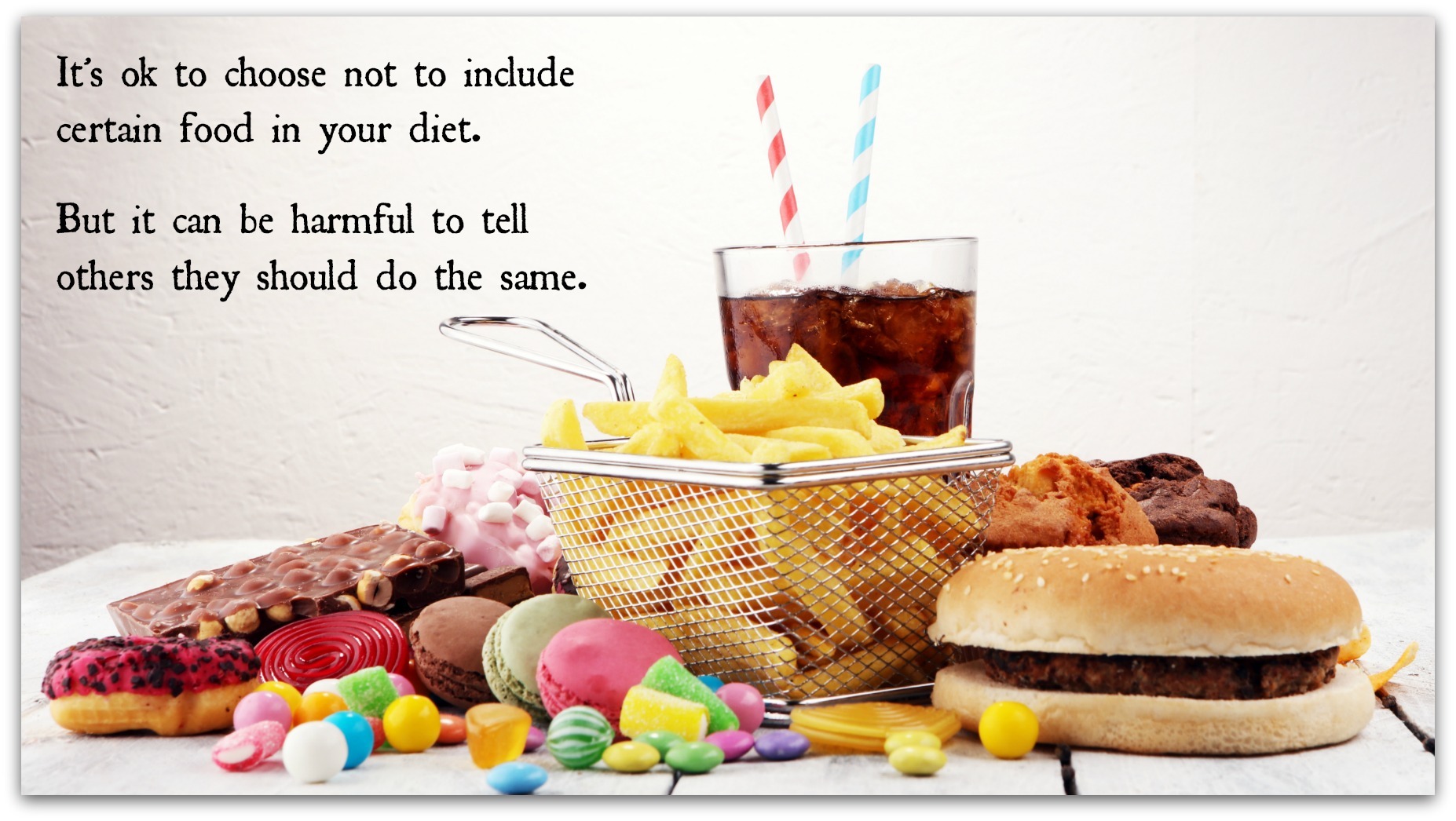It’s ok to choose not to include certain food in your diet

As a non-diet dietitian, I don’t often post about the choice not to eat certain food, or to follow particular style of eating.
When it comes to nutrition and how we eat, nothing is black and white. There is no one right way of eating and no one wrong way of eating.
Unless you have a food allergy or intolerance, no one food type will cause you ill health and no one food type will give you health.
Just as it’s ok to eat whatever you feel like, it’s also ok to choose not to eat a certain food or type of food if that’s what feels right for you.
Having a highly nutritious diet does not make you immune from health issues and having a less nutritious diet doesn’t necessarily mean you’ll suffer from a diet related disease.
Because we can’t be black and white, we can’t say that following a particular style of eating is wrong, even if we don’t agree with it.
However you choose to eat and whatever label you might put on it, such as low carb, paleo, vegan, sugar free, as long as you are making this choice because it’s what feels right for you, and it doesn’t cause any distress, then this is not going against non-diet or intuitive eating.
Recently I had dinner with a friend who has chosen a low carb way of eating. We were able to share a delicious meal and she simply chose not to eat a couple of things. This caused her no distress and she didn’t feel she was missing out in any way. However, the difference between my friend’s experience with eating and most of my clients, is my clients have often had a life-time of struggling with their eating and body image, without the dietary changes yielding the results they had hoped for.
As nutrition professionals, we need to respect other people’s decision with how to eat, if that’s what they’re comfortable with and especially if they haven’t asked for our opinion. As nutrition professionals, if people look to us for guidance, then we have the right to advise as we see fit and in a fashion that holds up to our clinical experience and to current evidence. As individuals, we all need to consider that what works for us, may not be what’s best for someone else, and we also need to respect other people’s decision with how to eat, if that’s what they’re comfortable with and if they haven’t asked for our opinion. Discussing nutrition with people you know well and perhaps giving some tips is most likely fine – however – unless you are a nutrition professional, you probably shouldn’t be giving specific nutrition advice to the general population, or people you don’t know well.
As a non-diet dietitian, I encourage my clients to lift any food restrictions or food rules and to start enjoying all foods. For people who have experienced distress with their eating and body weight/size for many years, this is an important first step. It is important because the restrictions or food rules have not brought about the desired changes, at least not long-term, and very often the person is trapped in a cycle of disordered eating and damaged psychological health. Breaking this cycle, requires healing one’s relationship with food and body and this requires lifting restrictions around food. However, once a person has healed their relationship with food and body, they may then find themselves in a place where they can manipulate their diet in a way that feels right for them.
